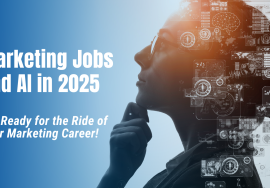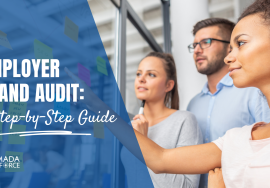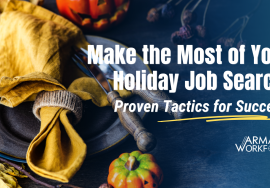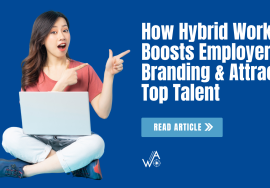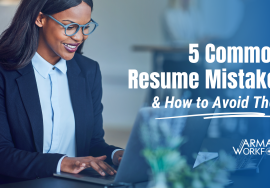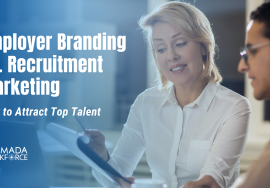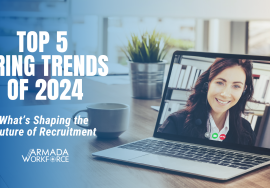
10 Key Recruiting Trends Defining 2025
Now that 2025 is in full swing, the talent acquisition landscape is evolving faster than ever. Drawing on our 20+ years of experience in recruitment consulting and employer branding, we’ve identified ten key trends that are already reshaping how organizations attract, hire, and retain top talent. From leveraging AI responsibly to offering holistic support for employees, here’s what every HR leader and recruiter should focus on as we navigate the year ahead.
1. AI and Automation in Recruitment
What’s Happening Now?
AI-powered tools continue to streamline recruitment tasks like resume screening, scheduling, and initial candidate assessments. Chatbots and automated processes are cutting down time-to-hire, enabling recruiters to handle more candidates with fewer resources.
Why It Matters
While automation enhances efficiency, over-reliance on AI can risk depersonalizing the candidate experience. Striking the right balance between technology and human interaction is essential to attracting quality applicants.
Actionable Strategies
- Automate Repetitive Tasks: Deploy AI for résumé reviews, basic screening questions, and interview scheduling, so recruiters can spend more time engaging with top candidates.
- Personalized Communication: Ensure recruiters follow up with meaningful, human-centric touchpoints—such as personalized emails or phone calls—to maintain a positive candidate experience.
- Audit for Bias: Continuously monitor your AI systems for hidden biases. Regularly update or retrain models to ensure fairness and inclusivity.
2. Skills-Based Hiring
What’s Happening Now?
As we enter 2025, more companies are adopting skills-based hiring practices that prioritize a candidate’s potential to succeed rather than focusing strictly on past job titles or years of experience.
Why It Matters
This approach opens up a broader talent pool and levels the playing field for high-potential candidates with diverse or non-traditional backgrounds. It also helps organizations hone in on the exact competencies needed to excel in specific roles.
Actionable Strategies
- Pinpoint Core Competencies: Define critical soft and technical skills essential for each position.
- Integrate Skills Assessments: Use situational exercises, coding tests, or problem-solving simulations to objectively measure competence.
- Promote Internal Mobility: Upskill and reskill current employees, encouraging them to transition into roles aligned with their evolving capabilities.
3. Hybrid Work Models
What’s Happening Now?
Companies embracing hybrid work—combining remote and on-site schedules—are already seeing an advantage in recruiting talent looking for flexibility. As 2025 progresses, flexible work arrangements remain a key deciding factor for job seekers.
Why It Matters
Organizations that offer hybrid work not only attract top talent but also benefit from increased productivity and employee satisfaction.
Actionable Strategies
- Establish Clear Policies: Define expectations for in-office versus remote days, ensuring clarity for both managers and team members.
- Leverage Tech Tools: Implement collaboration and project management platforms that keep remote and in-office teams connected seamlessly.
- Promote Work-Life Balance: Encourage leaders to set an example by respecting boundaries, normalizing flexible schedules, and supporting mental well-being.
4. Employee Development and Retention
What’s Happening Now?
A tight labor market and ongoing skills gaps have spurred companies to double down on training, upskilling, and career development. In 2025, retaining top talent is equally as critical as recruiting new talent.
Why It Matters
Investing in employees’ growth improves retention, boosts morale, and creates a forward-thinking, agile workforce ready to tackle emerging challenges.
Actionable Strategies
- Customized Learning Paths: Offer personalized training and leadership development initiatives that align individual aspirations with organizational goals.
- Mentorship and Coaching: Pair seasoned employees with newcomers to facilitate knowledge-sharing and relationship-building.
- Measure Impact: Use performance metrics and employee feedback to refine development programs and prove ROI.
5. Focus on Passive Candidates
What’s Happening Now?
Many skilled professionals are not actively job-hunting but are open to the right opportunity. As 2025 unfolds, recruiters who can cultivate relationships with these “passive” candidates will have a competitive edge.
Why It Matters
By proactively engaging passive talent, you build a pipeline of qualified individuals who already have some familiarity with your brand—and can be converted quickly when the right role opens up.
Actionable Strategies
- Continuous Relationship-Building: Regularly engage passive candidates through social media updates, newsletters, or occasional check-ins.
- Segment Your Audience: Tailor communications based on candidate interests, career aspirations, or industry focus.
- Offer Value: Share insights like salary benchmarks, market trends, or professional development tips to maintain trust and interest.
6. Emphasis on Soft Skills
What’s Happening Now?
Demand for soft skills such as communication, adaptability, and leadership continues to rise. These competencies are crucial for fostering collaboration and resilience in the face of ongoing market shifts.
Why It Matters
Teams with strong soft skills adapt better to change, innovate more readily, and maintain stronger internal and external relationships.
Actionable Strategies
- Structured Interviews: Include behavioral questions specifically designed to gauge candidates’ emotional intelligence, teamwork, and creative problem-solving skills.
- Realistic Team Exercises: Simulate scenarios where candidates must collaborate or resolve conflicts to assess how they’d perform in real-world situations.
- Ongoing Development: Provide workshops, coaching, and peer-to-peer learning opportunities to strengthen soft skills across your existing workforce.
7. Sustainability and Ethical Hiring Practices
What’s Happening Now?
In 2025, both candidates and consumers expect organizations to prioritize social responsibility, DEI (Diversity, Equity, and Inclusion), and environmentally conscious operations. Ethical hiring practices are no longer a “nice to have” but a critical requirement.
Why It Matters
Values-aligned hiring not only attracts purpose-driven talent but also boosts employee engagement, loyalty, and brand reputation.
Actionable Strategies
- Embed DEI in Every Step: From job descriptions to interview panels, ensure your process is inclusive and representative of diverse perspectives.
- Highlight Sustainability: Publicize your environmental goals and track your progress—whether that’s reducing carbon emissions, minimizing waste, or investing in green initiatives.
- Regularly Review Ethics: Conduct periodic audits to ensure that your recruitment strategies uphold both your legal obligations and ethical commitments.
8. Mental Health Benefits
What’s Happening Now?
Mental health remains top-of-mind for today’s workforce. Employers are expected to provide resources and support systems—be it counseling services, employee assistance programs (EAPs), or stress-management workshops.
Why It Matters
When employees feel mentally supported, productivity, creativity, and loyalty flourish. A strong focus on mental well-being also helps you stand out as an employer of choice in a competitive market.
Actionable Strategies
- Provide Access to Counseling: Offer private sessions with mental health professionals and promote these benefits frequently so employees feel comfortable utilizing them.
- Encourage Open Dialogue: Train managers to recognize signs of burnout and to foster a safe environment for discussing mental health concerns.
- Implement Preventative Measures: Set realistic workloads, encourage regular breaks, and evaluate processes to eliminate unnecessary pressure points.
9. Rise of Freelance and Contract Workers
What’s Happening Now?
The gig economy continues its upward trend, with companies relying on freelancers and contractors to handle specialized or project-based work. This model offers agility and can help fill critical skill gaps quickly.
Why It Matters
Blended workforces—full-time employees alongside freelancers—enable organizations to pivot swiftly without committing to long-term overhead. However, effective management and cultural cohesion require deliberate planning.
Actionable Strategies
- Clear Scope of Work: Provide detailed briefs and timelines to freelancers, making sure deliverables and expectations are clearly defined.
- Use Specialized Platforms: Niche freelance marketplaces or staffing agencies can connect you with vetted professionals who meet specific criteria.
- Stay Compliant: Keep up-to-date on regulations around contractor classification, payment practices, and benefits to avoid legal pitfalls.
10. Proactive Hiring Models
What’s Happening Now?
Talent acquisition is shifting from a reactive to a proactive approach. Organizations are using workforce planning to anticipate future needs, building succession plans, and creating talent pools well before roles become vacant.
Why It Matters
Proactive hiring strategies reduce time-to-fill, support smooth succession, and align closely with long-term business objectives.
Actionable Strategies
- Workforce Forecasting: Collaborate with department leaders to predict talent requirements and identify skills gaps for the coming months and years.
- Nurture Talent Communities: Keep in touch with potential candidates (both passive and active) through targeted newsletters, career events, and networking opportunities.
- Leverage Data Analytics: Monitor metrics like turnover rates, promotion patterns, and historical hiring data to spot trends and plan accordingly.
Closing Thoughts
In January 2025, these trends are no longer just predictions—they’re reshaping how successful organizations source, hire, and retain the talent that drives their growth. By adapting your strategies to incorporate AI thoughtfully, focus on holistic employee well-being, and embrace ethical, inclusive practices, you’ll create a thriving workforce prepared to meet the challenges of today and tomorrow.
About Us
With over two decades of recruitment and employer branding expertise, our team has guided diverse organizations through rapidly changing talent landscapes. We understand that a strong employer brand and future-focused recruiting practices are essential for sustainable growth. Ready to refine your 2025 hiring strategy? Reach out to us to discuss your unique challenges and opportunities.

